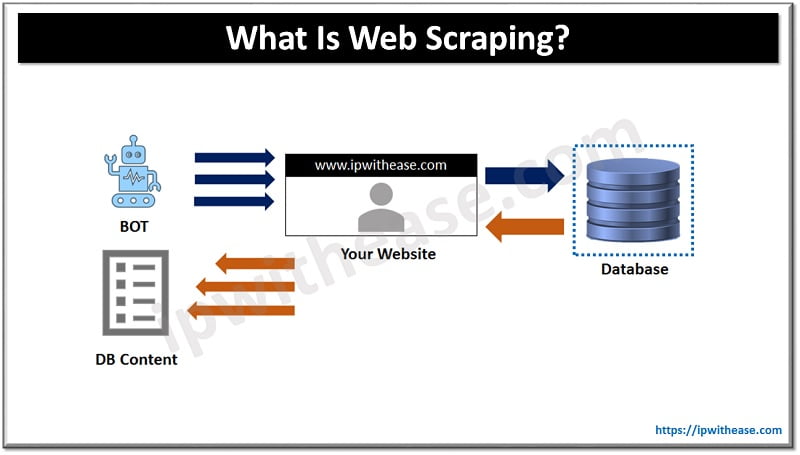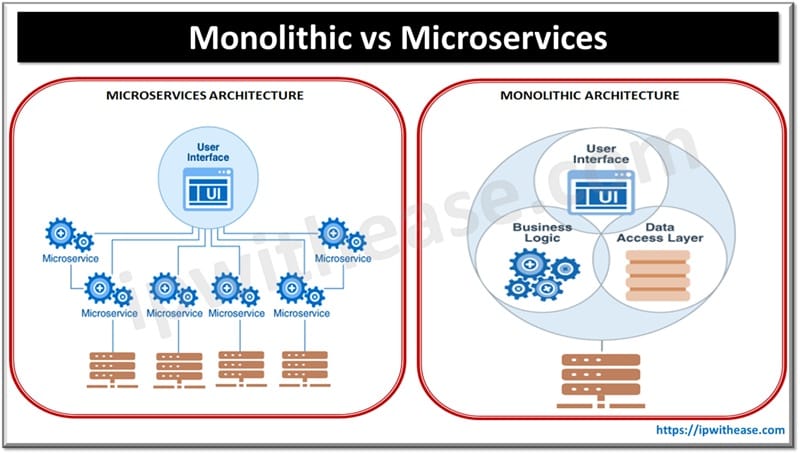The sheer volume of data that permeates our lives is escalating rapidly. Consequently, data analysis has become an indispensable component of the way businesses function. Despite the fact that data can come from a variety of sources, the largest amount of it is stored on the web. As the disciplines of big data analytics, AI, and machine learning develop, enterprises need data analysts capable of harvesting the web in ever more advanced ways.
In this article, we will discuss what is web scraping, its importance and usage; and why web scraping with python is becoming increasingly popular.

What is Web Scraping?
Web Scraping is a method used to automatically extract a large quantity of data from websites and store it in a file or database. The scraped data is typically in a tabular or spreadsheet form. Websites will only let you look at the data they provide in a web browser, not allowing you to save or download it. If you require the information, the only way to get it is to manually input it by copying and pasting, which is a very tiresome task.
With Web Scraping, it is possible to mechanize the procedure of accumulating data from websites, so that instead of manually extracting information, the Web Scraping program can complete the same job in a much shorter period of time.
A web scraping tool is designed to retrieve data from multiple pages of a website in accordance with a user’s specification. This software can either be tailored to a single website or configured to draw multiple sources of data. By pressing a single button, the data on a website can be quickly saved onto a computer file.

Why Python is Good for Web Scraping?
There is a range of programming languages and software available to design code for web-scraping, such as JavaScript, C++, Java, Perl, and so on. However, Python web-scraping has become increasingly popular due to the following advantages:
Simplicity
Python is a simple language, using only a small amount of coding compared to other languages to accomplish the same objective. The built-in syntactic dictionary and the user-friendly syntax in Python make it highly sought after by novice coders. This makes it easier to code a command system for web-scraping, enabling it to be completed faster and more accurately than others.
Libraries/Frameworks
Python has an extensive array of libraries/frameworks which include BeautifulSoup, Selenium, Scrapy, lxml and many more. These libraries are extremely helpful for web scraping and working further with the obtained data. Many developers take advantage of these development frameworks due to their expeditious data extraction capabilities. These frameworks boast great features like XPath, HTML, and more. Additionally, using Python to create code snippets accelerates the deployment process.
Used by Biggest Data Collectors
Google is one of the most prominent companies that implemented Python in its data collection processes. Their renowned search engine was also constructed with the help of the programming language Python. Several other entities take advantage of Python as well, including YouTube, The University of Maryland, Industrial Light & Magic, and numerous others.
Aids Data Organization
Collecting a huge amount of data can be difficult, especially when it is being taken from corporate or analytical sites. These sources can include an extensive amount of measurements, parameters, and knowledge in general.
Python utilizes a library called Pandas to assist coders in converting their collected data into useful and useful results. It can be organized into any format needed, like .csv, .sav, .omv, and so on.
Time Saver
Web scraping was developed to make laborious tasks, such as collecting a huge amount of data by hand, less taxing. Applying Python for web scraping is analogous because you are able to write a small piece of code that does a huge job. Therefore, Python is a great time-saver for many developers.
Cohesiveness with other languages
One of the downside of Python is its high run-time. Nevertheless, programming languages like Python figured out a convenient resolution to this. By enabling an overlap of the languages’ application, they made activities simpler while additionally conserving time, labour, and energy.
For example, Java can incorporate Python parts and enhance them with an insertion, making them operate more productively.
Final Words
When making a choice between programming languages for web-scraping, keep in mind that Python is your best option. Python is excellent for constructing libraries, frameworks, and other systems that can be used to gather, sort, and manage data from many different enterprises around the world.
People find this language to be user-friendly and highly flexible. Even though Python may not run as quickly as other languages, it still works well with other programs, allowing it to take advantage of their high performance engines, thereby decreasing total energy consumption.
Continue Reading:
Kivy: Cross-platform Python Framework for NUI Development
What is Pylint? Python Programming Tool
ABOUT THE AUTHOR
IPwithease is aimed at sharing knowledge across varied domains like Network, Security, Virtualization, Software, Wireless, etc.


